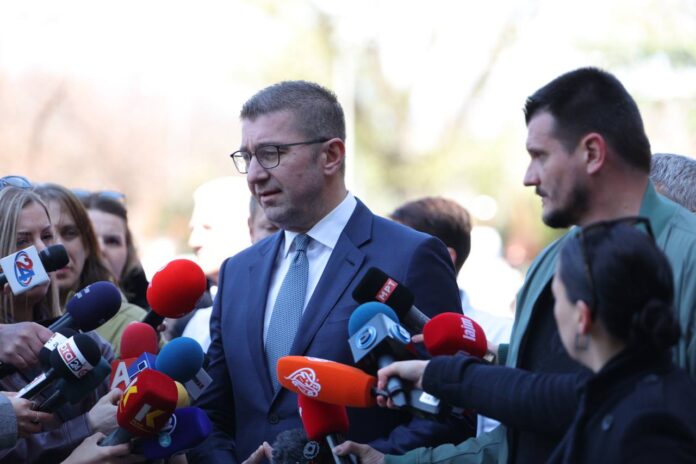Will Europe repair what it has destroyed?
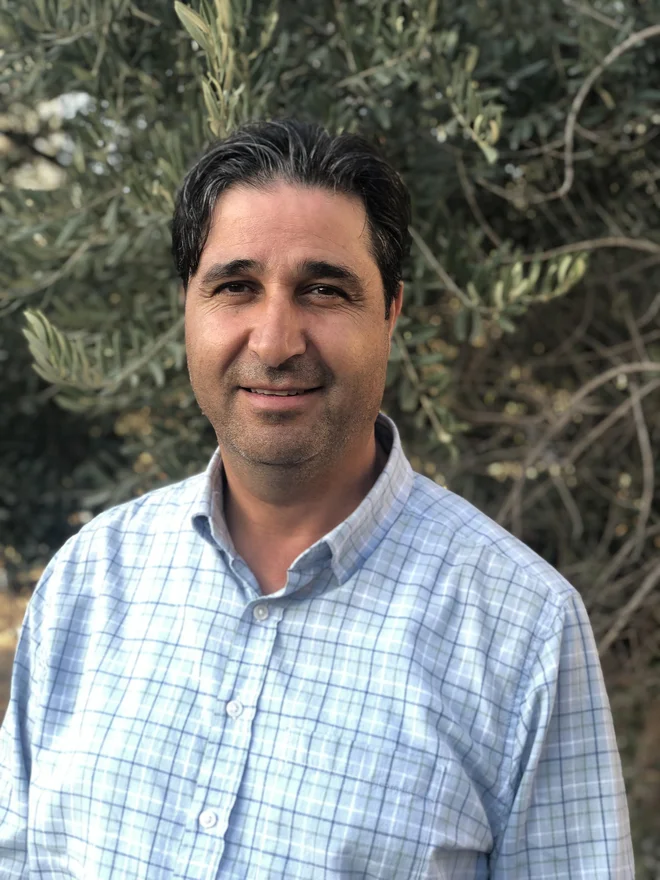
This year I spent the day of Nakba in Slovenia. At several events, I spoke precisely about the Nakba and the genocidal war that Israel beat against the Palestinian people. Although this was not my first visit to Europe, it was my first participation in the events on the day of Nakba outside Palestine. It was a unique experience, but full of conflicting emotions and thoughts.
For the first time, I participated in a memorial event in the peaceful and free atmosphere, without being afraid of the brutality of the Israeli occupation, its bullets, tear gas and arrests. It is quite ironic to talk about genocide, suppressing and starving my people in Slovenia and in front of an audience who enjoys freedom, security and prosperity. In these peaceful places and with these people, I would rather talk about the beauty of Palestine and its diverse environment, literature, culture, art, folklore and agriculture – things we are proud of and would like to share with the world. Unfortunately, there is no voice that is louder than the sound of Israeli bombs and moaning hungry and suffering in Gaza and the West Bank.
I, a Palestinian who comes from occupied territories, was amazed at the unlimited freedom of movement. I was also inspired by talks of Slovenes about the tragedies experienced by their country, especially during the two world wars. These tragedies have become part of the past, preserved only in memories, photo -archives and museums, while my people continued to live such tragedy day by day.
Freedom of movement
Farid Tamalah: I, a Palestinian who comes from occupied territories, was amazed at the unlimited freedom of movement in Europe. Photo: Aljaž Sparrow
Freedom of movement within Europe is the first thing that is stunning us, especially Palestinians. The fact that you can travel anywhere within Europe without review or obstacles is sharp in contrast to our lives on occupied territories.
We, the Palestinians, the indigenous people, the Israeli occupation authorities, do not allow travel to and from the green line (delimitation line), nor can we visit Jerusalem, which lies in the center of historical Palestine. We also cannot travel inside the west bank, from one place to another or even from one village to another, without crossing checkpoints, obstacles and barriers that are often closed. Even the Mediterranean Sea, which can be seen from the hills on the west bank just a few kilometers away, is for the Palestinians as an unattainable dream.
Since last November, I couldn’t visit my own farm, which lies only fifty miles from my residence in Ramala. Namely, dozens of checkpoints separate me from the home town of Kir. Crossing these points can take hours, sometimes I don’t even succeed. At the same time, Jewish settlers can move freely within occupied territories, as they can travel completely unobstructed on separate traffic roads that Palestinian people should not use.
It is quite ironic to talk about genocide, suppressing and starving my people in Slovenia and in front of an audience who enjoys freedom, security and prosperity.
Also, travel from Palestine to other countries for Palestinians is not possible through a nearby Tel Aviv airport. Instead, we have to travel to Jordan and cross the terrestrial border that is under Israeli control. This procedure is time consuming and includes demanding procedures, the use of passenger cars is prohibited.
The walls of the past
During my stay in Slovenia and Italy, I also visited the city of Gorizia on the Slovenian-Italian border. It consists of two parts: the old Italian city of Gorizia and the neighboring Slovenian city of Nova Gorica. After World War II, authorities built an iron fence that separated both parts of the city, one under the control of Italy and the other under the control of the former Yugoslavia.
Iron fence is now part of the past, as it was removed in 2004, but its works remained as evidence of the painful past of Europe. Now there is a tourist attraction visited by people from both countries and listening to explanations about how the city has experienced this dark period in history. So I listened to the narrative of the dark past in Europe, while today I live it under Israeli occupation.
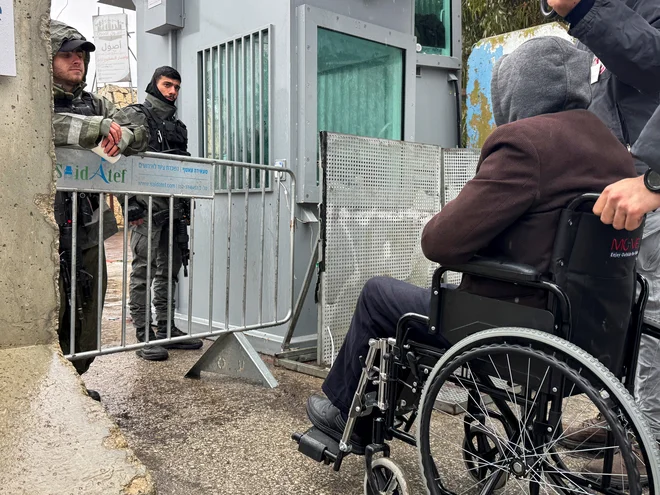
Palestinians cannot travel inside the west bank without crossing checkpoints, obstacles and barriers that are often closed. Photo: Josri Aldzamal/Reuters
The apartheid wall extends to which the view extends, separating the city of Jerusalem and its inhabitants from the neighboring town of Ramala, where I live. The massive, ugly concrete wall, built by Israel on Palestinian soil, separates families with each other. As a Palestinian, I cannot travel to Jerusalem, which borders Ramala, and Israelis can do it easily.
My visit to Ljubljana also coincided with an annual event, when Slovenes walk the path that mimics the location of the wire, which Germany and Italy erected around Ljubljana during the Nazi-fascist occupation of the city. I saw Slovenian families who walked quietly and peacefully on a beautiful path that marks the ugly memory of the nasty racist wire. But my people, including my children, continue to live with this painful reality. For example, my daughter needs a military permit from Israeli occupation authorities every time she has to visit a hospital in Jerusalem. Sometimes they refuse her license, but mostly for « safety reasons » they prevent me from being accompanied by a hospital.
Yugoslav-Partisan Resistance Movement
During my visit to Slovenia, I also listened to many songs that people sang during World War II and celebrate the revolutionary partisan movement that resisted Italian and German occupiers. The Slovenes now, with pride and admiration, listen to the poems and stories of the partisans because of their resistance against occupation and efforts for liberation and salvation, and the partisans celebrate as heroes, martyrs and fighters for freedom.
When I heard revolutionary poems, I remembered the poem of the Palestinian Revolution and how the story of the self -taught (Fidajun) entered the Palestinian folklore and how the stories about the revolution and uprising became part of our heritage. But if you can sing such songs in Slovenia, the Palestinian Liberation Movement for the Terrorist Movement shall apply. It is demonized and forbidden not only in Israel, but also in Europe and many other western countries.
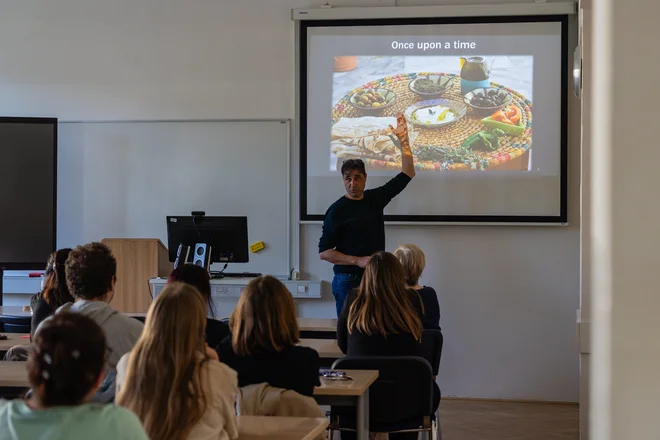
Farid Tamalah: Although this was not my first visit to Europe, it was my first participation in the events on the day of Nakba outside Palestine. Photo: Črt Piks
Online platforms even prohibit the publication of any song, photo or text that celebrates or praise Palestinian resistance, as they have this to encourage terrorism. Israel is often arrested by Palestinian citizens only for posting on Facebook or Instagram, and those with telegram and ticket are haunted and sometimes taken at checkpoints.
Europe: Publicly solidarity but officially complicit
During my visit, I also felt European public solidarity with Palestine and sympathy for our fair goal. Among students, teachers, workers and artists … wherever I went, I saw Palestinian leaflets, slogans and flags.
But folk sympathy and protests have not yet reached the level of pressure that would need to make governments radically change their policy in support of Israeli occupation. Some European countries, such as Austria and Germany, continue to provide unlimited support for Israeli occupation and prevent or suppress all Propalestinian demonstrations under the pretext of the fight against anti -Semitism.
However, there are also countries such as Slovenia, Spain and Ireland, where demonstrations and protest movements have a positive impact.
Reality at home
After a few days spent in Europe, I returned home, crossed Israeli checkpoints and obstacles again, and drove near illegal Israeli settlements that are growing rapidly, and illegal settlers are becoming extremely violent. In recent days, we have witnessed a pronounced increase in barbaric attacks on the western bank, especially in neighboring villages such as Brukin, Kafr Ad Dik, Syntil and Turmus.
The gauze starch and genocide policy has culminated; People are dying for hunger, rockets and lack of medication. Many European countries have stated that they will not remain silent on the real hunger in Gaza, and threatened to stop partnership and cooperation with Israel. It is Europe that played an important role in the emergence of the Israel, supported it, provided it with weapons and political coverage. It is time to stop this, fix mistakes and put ourselves on the right side of history.
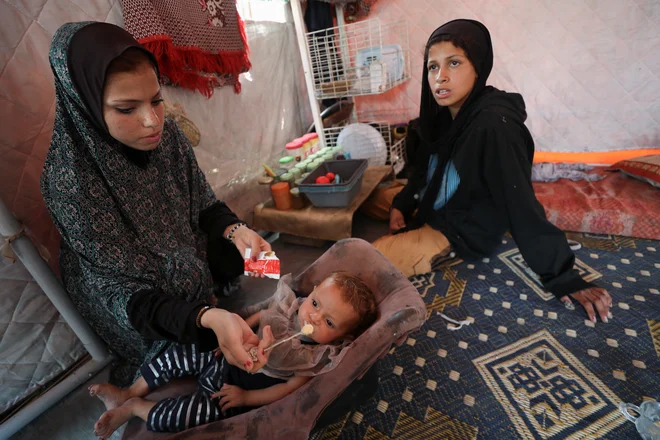
The policy of starvation and genocide in Gaza has culminated. Photo: Mahmud Isa/Reuters
I believe that global protests against Israel reach a critical point and that we will witness the radical shift of the policy of many countries to further boycotting, the sale of Israeli property and sanctions against Israel.
This will help stop the genocide and end the occupation. It will allow my children to live in a better world than I do, so that genocide and suppression will become part of the past, and my children will experience freedom and peace that I have never had.
***
The article is the opinion of the author and does not necessarily express the position of the editorial board.

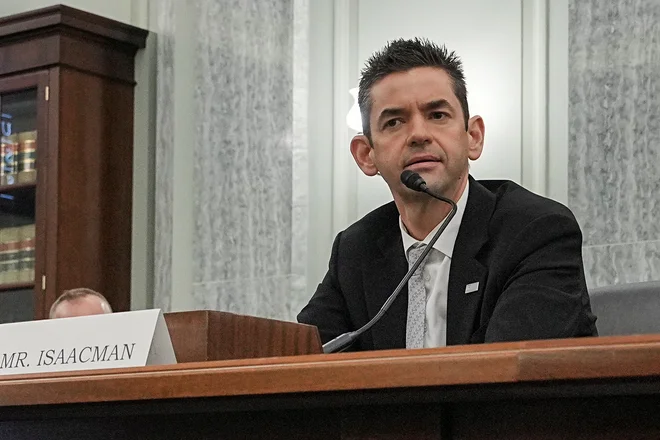
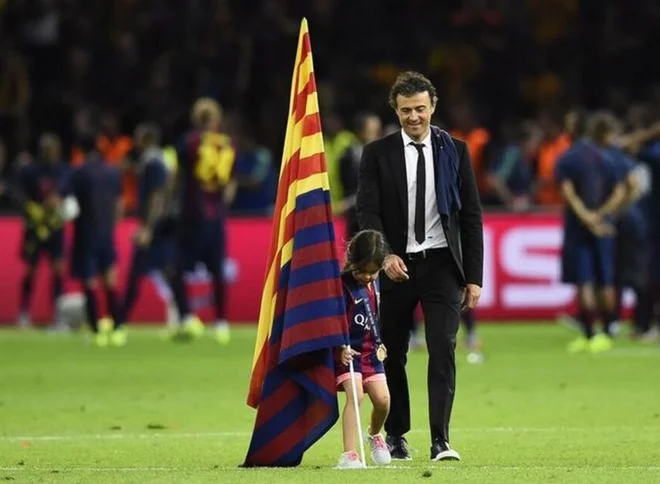
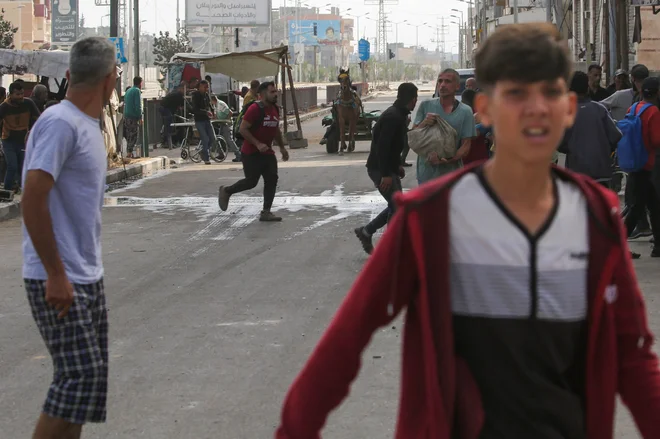

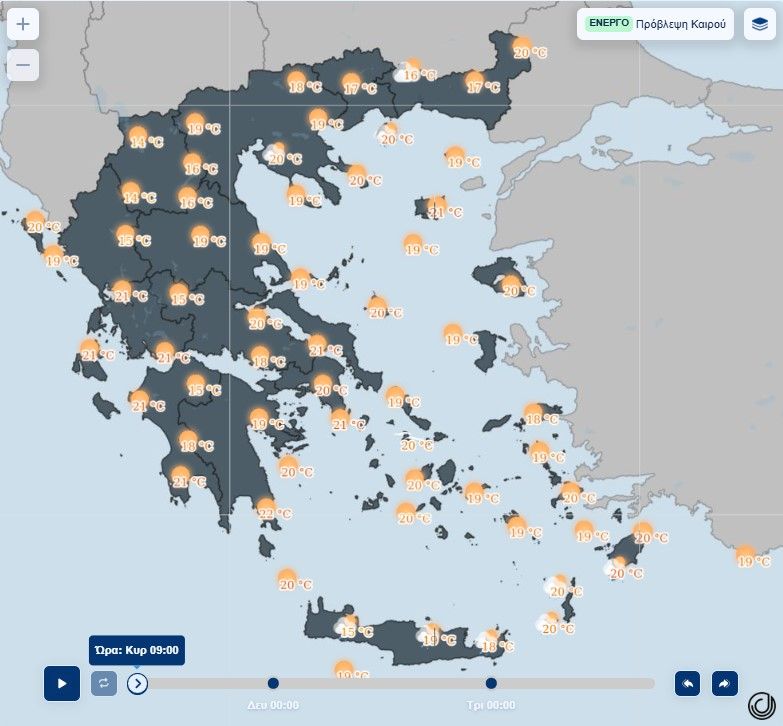
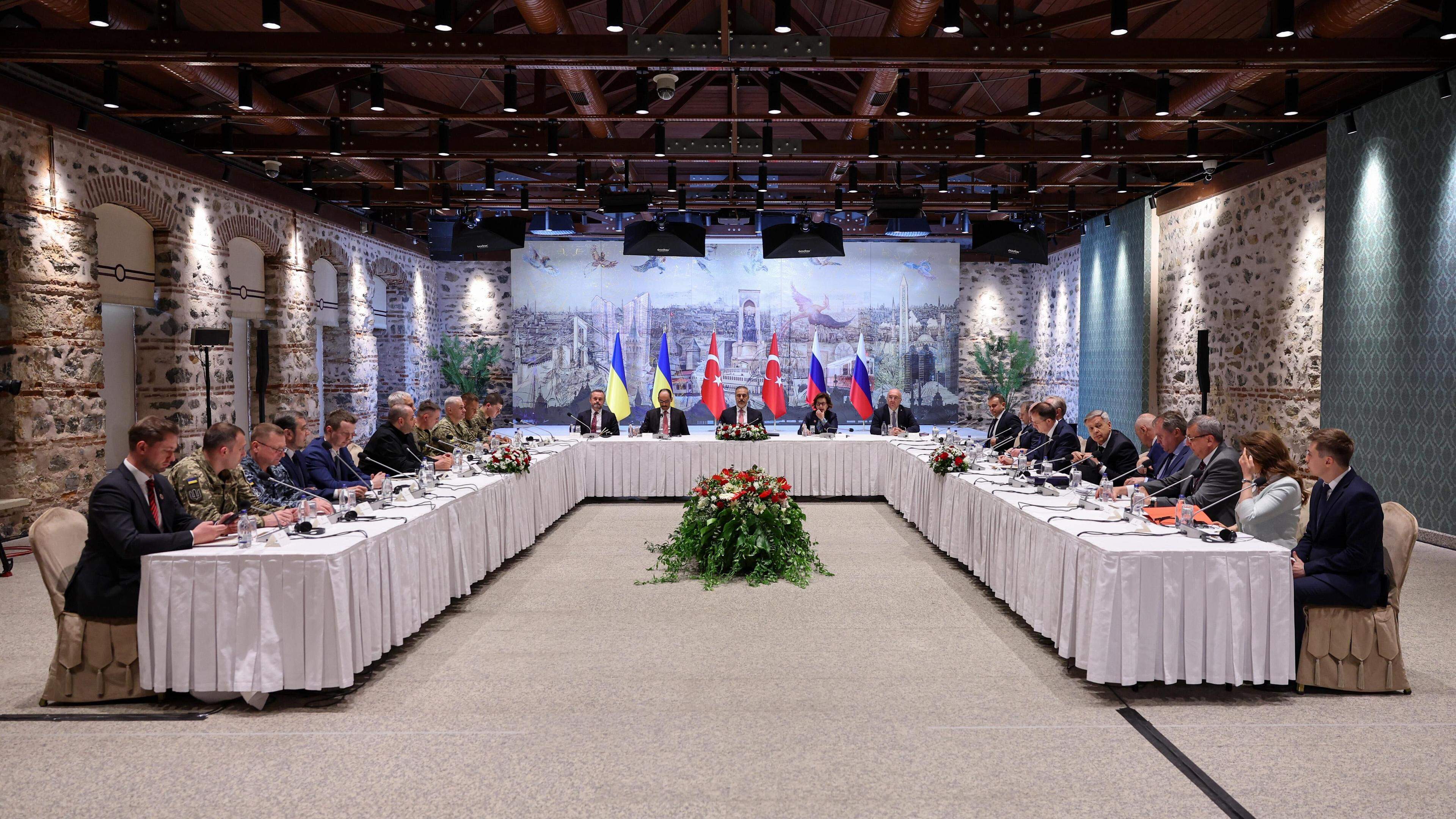
/s3/static.nrc.nl/images/gn4/stripped/data133101536-0efed2.jpg)
